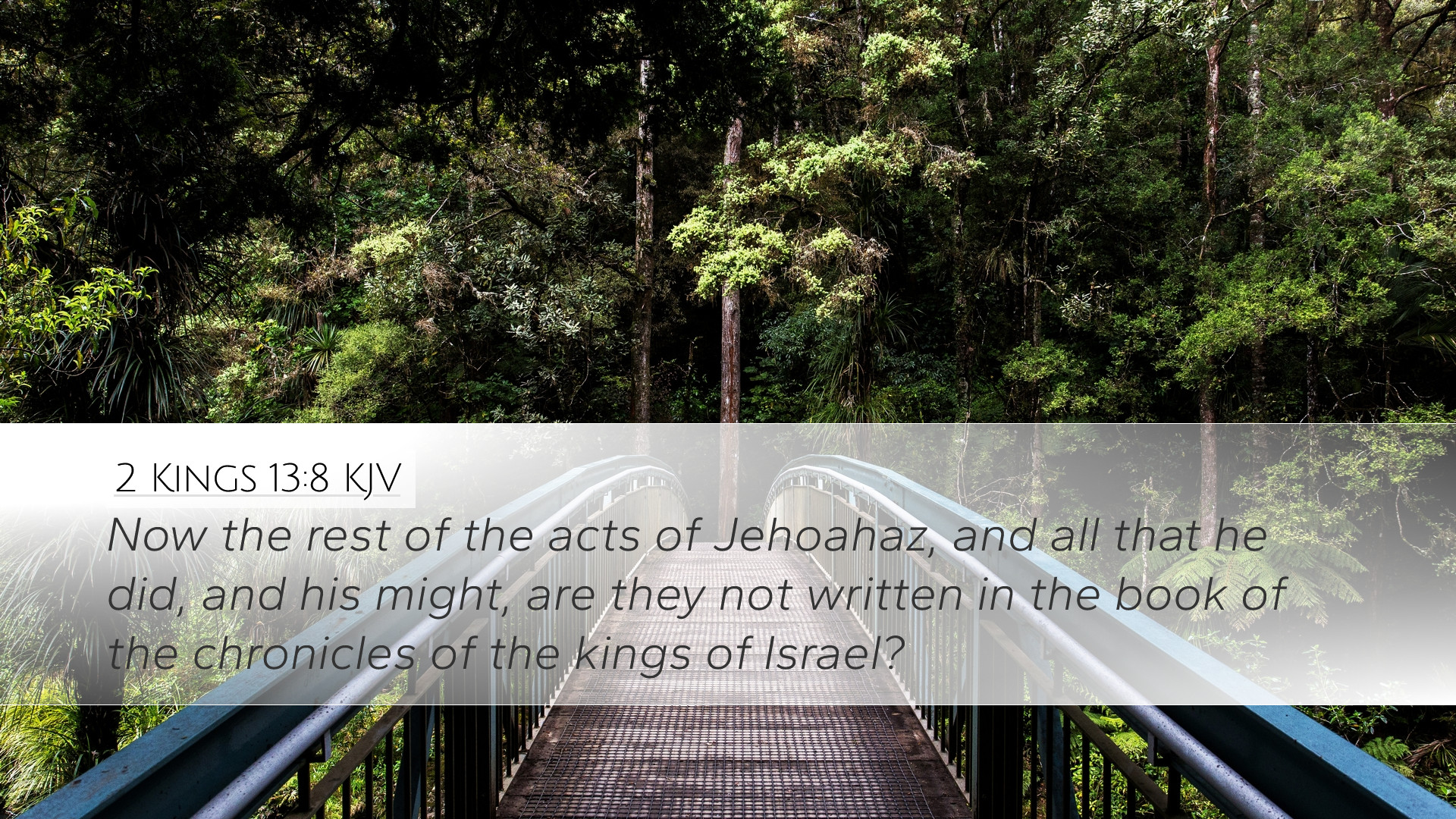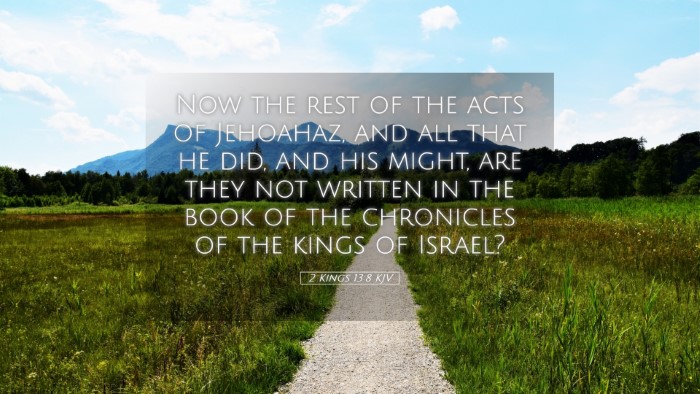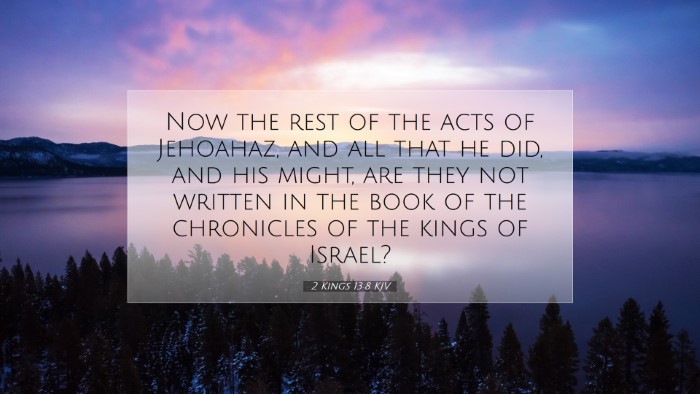Commentary on 2 Kings 13:8
2 Kings 13:8 states:
"Now the rest of the acts of Jehoash which he did, and his might, and how he fought with Amaziah king of Judah, are they not written in the book of the chronicles of the kings of Israel?"
This verse serves as a concluding remark concerning the reign of Jehoash (also referred to as Joash), the king of Israel. To comprehend the implications of this passage, it is essential to delve into the context surrounding Jehoash's reign, his military exploits, and the broader historical narrative of Israel and Judah.
Historical Context
According to Matthew Henry, the reign of Jehoash was characterized by both military triumphs and spiritual failures. His military actions had significant ramifications during a turbulent time in Israel's history. As a king, he sought to restore the kingdom's fortunes, which had been suffering under the weight of previous kings' disobedience to God.
Military Emphasis
Albert Barnes highlights that this verse emphasizes the might and military conflicts faced by Jehoash, particularly pointing out his engagement with Amaziah, king of Judah. Jehoash’s actions in battle not only represent his physical strength but indicate a larger theme of conflict between Israel and Judah. These encounters underline the geopolitical tensions of the time, as Israel and Judah were often at odds due to their differing allegiances and kingship methods.
Spiritual Dimension
Adam Clarke takes an even deeper approach by underscoring the spiritual implications of Jehoash's actions. While Jehoash may have been involved in significant battles, his spiritual failures overshadowed many of his achievements. Clarke argues that the historical accounts that Jehoash's reign produces should not merely be seen as figures of might, but as reflections of the nation’s spiritual decay.
Chronicles of Kings
The reference to the "book of the chronicles of the kings of Israel" suggests that while Jehoash’s might is acknowledged, it is his alignment with God’s purposes that ultimately defines his legacy. As Matthew Henry elucidates, this chronicling serves as an indictment of the kings who strayed from following the covenant established with God.
Theological Reflections
This verse invites theological reflection on the importance of legacy as it relates to divine endorsement. An analysis by Albert Barnes reiterates that historical records serve not just as accounts of past rulers but as reminders of how choices shape a nation's relationship with God. Pastors and theologians are encouraged to examine how the historic actions of leaders affect the collective spiritual destiny of their people.
Conclusion
In sum, 2 Kings 13:8 provides a layered snapshot of Jehoash’s reign, reflecting not only his military capabilities and struggles but also a deeper spiritual truth regarding the necessity of adherence to God’s commands. The combination of insights from Matthew Henry, Albert Barnes, and Adam Clarke converge on the theme that true might is intertwined with a righteous lineage that honors the divine covenant.
Key Takeaways for Contemporary Application
- Legacy Matters: The historical accounts of leaders serve as lessons for present and future generations.
- Spiritual Oversight: Acknowledge that military and political gains are futile without a corresponding commitment to God.
- Conflict Resolution: Reflect on how interpersonal and intergroup conflicts can shape collective identity and faith journeys.


